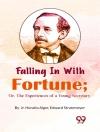In ‘Orlando, ‘ Virginia Woolf crafts a phantasmagorical narrative that transcends conventional notions of gender and time. This groundbreaking novel traverses three centuries, following its protagonist, Orlando, who undergoes a miraculous transformation from male to female. Woolf’s distinctive stream-of-consciousness style complements the richly imaginative plot, allowing readers to explore themes of identity, fluidity, and the constraints of societal norms. Set against the backdrop of English history, the text wittily critiques patriarchal values and idealizes the liberating potential of artistic expression. Virginia Woolf, a central figure of the modernist literary movement, infused her own experiences and feminist ideologies into her innovative works. Her intricate appreciation of the fluidity of gender and identity is likely derived from her own nonconformist life and relationships, as well as her engagement with the experimental ideas circulating among her contemporaries in the Bloomsbury Group. This innovative narrative thus reflects Woolf’s profound philosophical inquiries into the nature of existence. ‘Orlando’ invites readers to reconsider the constructs of gender and history in a refreshing and imaginative manner. Highly recommended for those interested in feminist literature, modernist fiction, and the exploration of identity, this novel remains a timeless exploration of human experience, urging readers to embrace the complexities of life beyond rigid definitions.
Mengenai Pengarang
Virginia Woolf (1882–1941) remains one of the most innovative and influential writers of the 20th century. Woolf was born into an intellectual family in London and grew up amidst the influences of her father, Sir Leslie Stephen’s literary society. As a central figure in the Bloomsbury Group, Woolf revolutionized narrative forms and introduced new ways of exploring the human consciousness. She is admired for her contributions to modernist literature, particularly her use of stream-of-consciousness and lyrical prose. Her works frequently examine the complexities of time, memory, and individual perception, artfully collapsing boundaries between the internal and external worlds of her characters. ‘Orlando: A Biography’ (1928), one of her most celebrated novels, playfully crosses genre divides and breaks traditional narratives regarding sex and gender, as it traces the centuries-long adventures of its androgynous protagonist. This work exemplifies Woolf’s literary style, characterized by wit and a flair for the poetic. Beyond ‘Orlando, ‘ Woolf authored numerous novels, essays, and short stories of critical acclaim such as ‘Mrs. Dalloway’ (1925), ‘To the Lighthouse’ (1927), and ‘A Room of One’s Own’ (1929), in which she famously asserted, ‘A woman must have money and a room of her own if she is to write fiction.’ Woolf’s contributions to literature and feminist discourse remain profound, and her writing continues to be extensively studied, admired, and enjoyed for its depth, innovation, and beauty.












